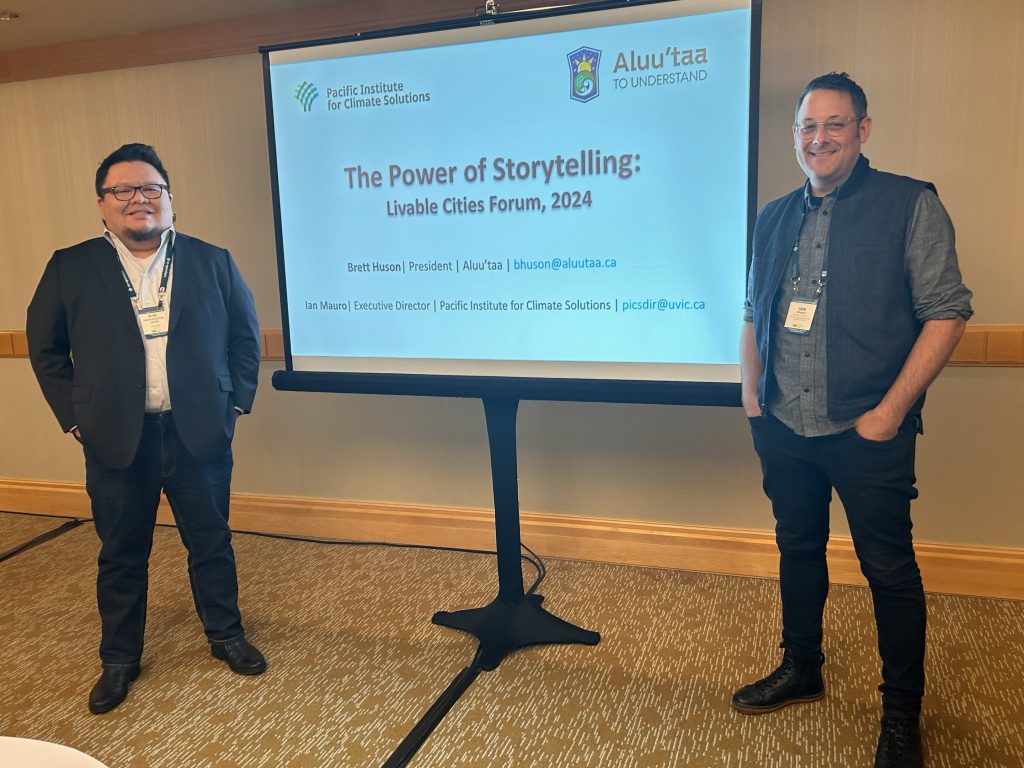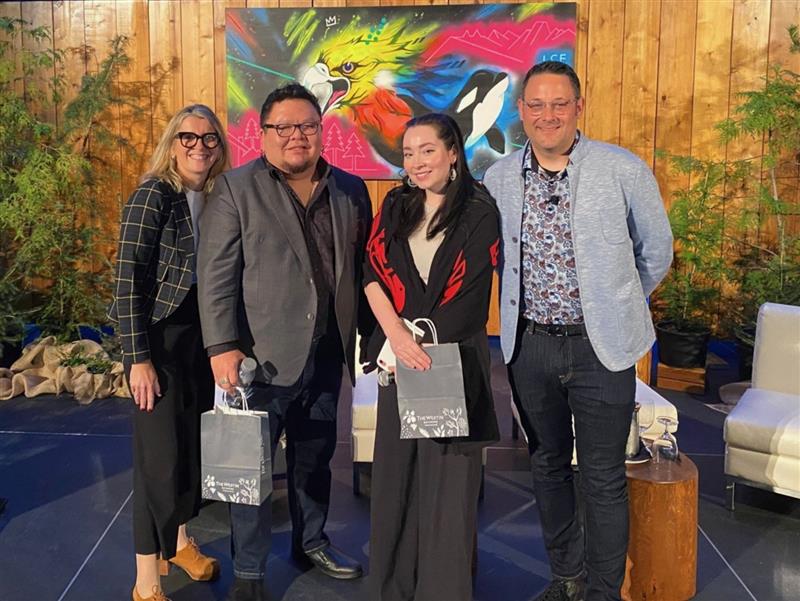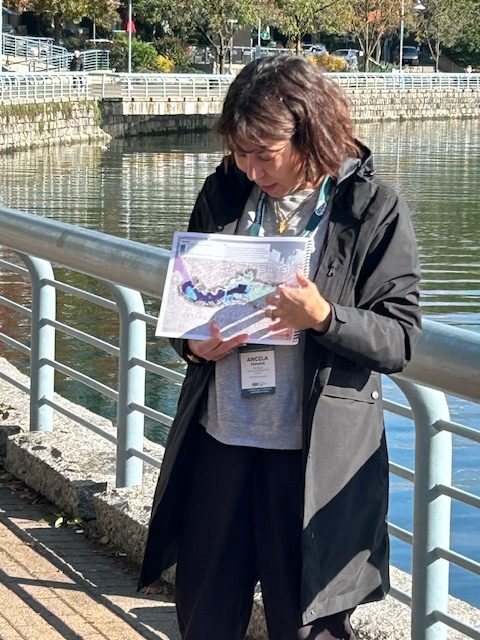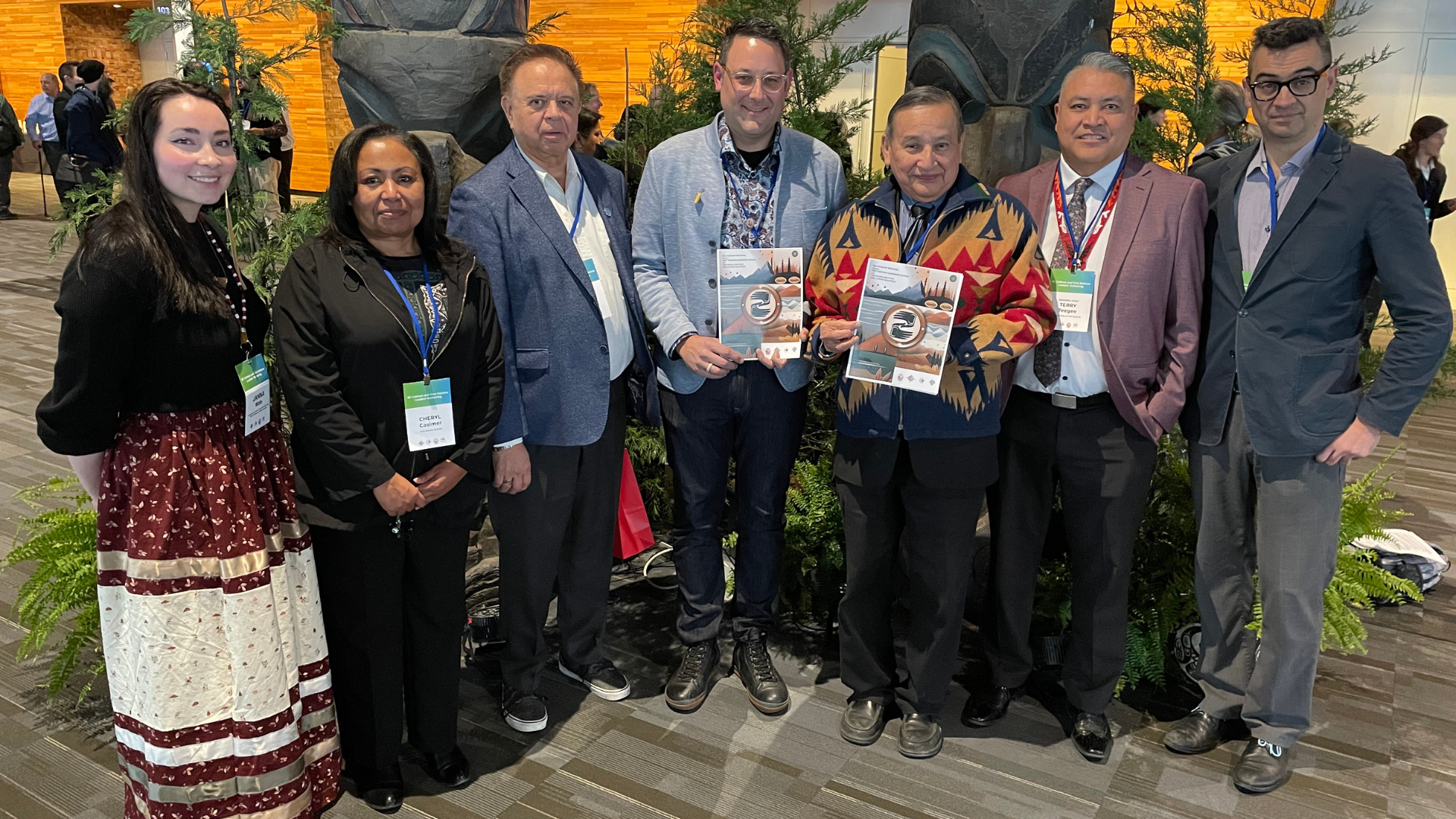Members of the PICS team share the power of effective climate communication and the role of Indigenous Knowledges in fostering climate resilience
The Pacific Institute for Climate Solutions made a strong showing at this year’s Livable Cities Forum, Oct. 23 to 25, with staff leading critical discussions on the power of effective climate communication and the role of Indigenous Knowledges in fostering climate resilience.
The 2024 forum, with the theme “Multisolving for a Net Zero and Resilient Future”, brought community leaders and experts together to explore creative solutions for a future that meets net zero goals and is ready to face the challenges of climate change.
“Livable Cities put the spotlight on solutions that can address multiple challenges at once. For example, district energy initiatives or active transportation projects reduce emissions, lead to healthier communities, and increase affordability all at once.”
– Daniel Arbour, PICS partnerships and granting specialist

PICS Executive Director Dr. Ian Mauro co-facilitated a session on “Rethink Your Climate Communication” with Hetxw’ms Gyetxw (Brett Huson), Gitxsan climate researcher and president of Aluu’taa. Their session encouraged attendees to use behavioural insights and storytelling to reach diverse audiences.
“Critical conversations about advancing climate action take place at the Livable Cities Forum,” says Mauro. “Our sessions encouraged participants to engage in thoughtful and respectful communications and relationships with Indigenous peoples, Knowledges, and lands. PICS was able to demonstrate our leadership in these dialogues.”

PICS’ Indigenous Research and Partnerships Lead Janna Wale led a plenary on integrating Indigenous Knowledges into climate risk assessment with Hetxw’ms Gyetxw and Mauro. Wale shared findings from her report, From Risk to Resilience, co-authored with Hetxw’ms Gyetxw and the Yellowhead Institute. Wale closed the panel by emphasizing that climate work is “heart work”, and urged participants to show up authentically in climate planning and policy.
“People appreciated the reminder that it’s okay to bring their true selves into climate work. Afterward, many came up to share their thoughts and gratitude, and it was heartening to see how resonant these ideas were.”
– Janna Wale, PICS Indigenous research and partnerships lead
Another forum highlight for the PICS team was the immersive session that explored the Sea2City seawall project in False Creek, a yearlong effort to reimagine the waterfront’s future as sea levels rise.

“The Sea2City immersive session was an opportunity to learn about – and be inspired by – the City of Vancouver’s incredible work there. The city is bringing diverse communities, knowledges, and expertise into a values-based planning and design process focused on the future of False Creek in a changing climate. Learning while walking around False Creek in the sunshine with a group of conference attendees was a great way to spend the afternoon!”
– Emily MacNair, PICS director of programs and partnerships
Including diverse perspectives and knowledges is essential in building true climate resilience. PICS is proud to have shared our team’s expertise and to have engaged with other voices committed to advancing meaningful, inclusive climate action.


